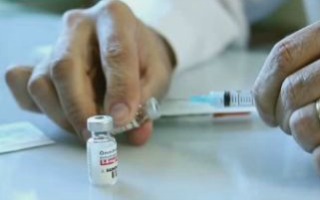Dr. Weeks’ Comment: The only illegal use of HGH is for performance enhancement.
Here is the Federal Law:
21 U.S.C.A. §333(e) Prohibited distribution of human growth
hormone. (1) Except as provided in paragraph (2), whoever knowingly
distributes, or possesses with intent to distribute, human growth hormone
for any use in humans other than the treatment of a disease (or other
recognized medical condition, where such use has been authorized by the
Secretary of Health and Human Services under section 355 of this title
and pursuant to the order of a physician), is guilty of an offense
punishable by not more than 5 years in prison, such fines as are authorized
by Title 18, or both. (2) Whoever commits any offense set forth in
paragraph (1) and such offense involves an individual under 18 years of
age is punishable by not more than 10 years.
(Note: underlining and parenthesis added to clarify the disjunctive “or”
separating “treatment of a disease” or “other recognized medical condition”)
Summary: HGH is not illegal for doctors to prescribe as treatment for diseases or other non-disease conditions (if these non-disease conditions are approved). However, it is illegal for doctors to prescribe or trainer/parents/coaches to “distribute” HGH for performance enhancement. These athletes are getting HGH illegally.
Study Addresses Increasing Use Of HGH By Student Athletes
A new study released Wednesday shows more young people are looking to drugs to boost their athletic performance.
The confidential study by the “Partnership for Drug-Free Kids,” surveyed over 3,700 high school students and found the number of students who reported using the synthetic drug HGH, or human growth hormones, doubled from the year before, and stands at 11-percent.
We talked with young adults and coaches in Eastern Carolina for their take on the issue.
At the Next Level Training Center in Greenville, young athletes are making the gains the old fashioned way, through hard work.
Julia Allsbrook is a recent high school graduate and says, “To get to the next level and take the next step we can do it on our own and we’re not going to need a drug, or enhancer.”
Trent Britt, owner of Next Level Training Center, says, “There’s increasing pressure, not just in youth athletics, but in the public in general that if you can get an edge in any way without having to work hard they’re going to try to jump on it. There’s no substitute for sweat and there’s no substitution for hard work and anything you may take to try to circumvent that is simply not going to work.”
The coaches we talked with say they’re more worried about their student athletes not getting enough water or protein, than experimenting with performance enhancing drugs.
Britt says, “We’re trying to teach people to get enough greens in their diet, drink enough water. When they’re done training, they need to get lean protein in themselves. It’s just not something we’ve seen on the high school level here in Greenville.
The side effects for HGH in young athletes include stunted growth, increased acne, liver problems, shrunken testicles, and excess facial hair for girls.
(ED note from Dr. Weeks: This preceding sentence is inaccurate: the ONLY documented side-effects of over-dose of HGH are sodium retention / edema as well as blunted insulin response. Whereas too much estrogen causes cancer, too much cortisol is lethal, too much insulin is lethal, too much testosterone can cause road rage and mood disorders, in contrast, too much HGH causes transient swelling!)
The study has surveyed students in grades nine through 12, nationwide for 25 years.


